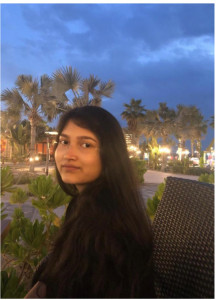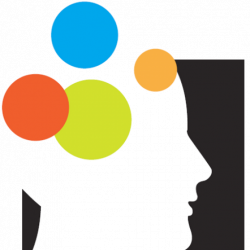
Could you tell us what your research question and hypothesis focused on?
My research question focused on the relationship between goal pursuit and communality in relation to gender. Previous research discovered a link between socioeconomic status (SES) and communality, and later, interactions with goal pursuit. Branching from that study, I wanted to explore whether the same effect would be observed if SES was replaced by gender as a variable.
What made you choose gender in measuring SES and its relations to goal pursuit, and was it difficult to implement?
In an SES study they found that when lower SES people were exposed to negative social situations, they experienced setbacks in achieving their goals. Whereas higher SES people did not. This points towards the possible disparities in disadvantages and the resulting inequities. I wanted to see if these inequities also transpire with gender.
We’ve learned in cultural and social psychology how women are typically found to be more communal than men. So, while the variations in communality between men and women are minor, some aspects make them more apparent. Societal reappraisals or the backlash women receive for not being communal at work would be an example of a reinforcing factor. It was interesting to explore if women were more actually communal, and if they were, what it meant in terms of them achieving their goals.
What was your favourite part of the process?
I think the most exciting part was coding. The coding we did was mainly qualitative, which meant that I got the opportunity to work directly with participants’ responses. I’ve never done statistical coding before but seeing it all come together — to see it on an actual data set, and understand what that exactly meant was very meaningful and kind of cool.
What are some questions that your research findings have sparked?
One finding in our study was that women experienced greater frequencies of positive events. This sort of validated previous literature and also created new questions. Specifically in terms of women having more social support. For example, if women experiencing more positive events is linked to them having a larger social network and support, then they are also able to better cope with stressors and negative events. I think it’d be interesting to find out what these positive events do for women’s happiness and mental health in general. Additionally, our null findings could mean that gender norms are changing, which is also in line with recent literature.
If you could do your study again, what would you do differently and why?
Because this was my first study, I think there’s a lot that I would do differently. I think if I had to do it again I would make the hypothesis more specific. And I would want to ask more sub-questions instead of just one broad question.
Tell us about how you stay organized and manage your time while doing an honours/DS project. How do you prioritize and motivate yourself?
I always thought research was boring. And I thought I would never be interested in research. But then I wanted to go to grad school. So it forced me to apply to research and then work in directed studies. After being involved in research, I really enjoyed it; I think for once it felt like it was my project. I knew the data, I was looking through things, I was coding for things. It was very easy for me to stay engaged and keep track of my progress. I think everyone knows me as someone who finishes everything way ahead of the deadline, like weeks before because it is very satisfying. So staying organized for me comes very naturally.
How do you network within the psychology community, and where have you made your most valuable connections?
I would suggest applying to as many labs as possible and working with whoever gets back to you. It was through this that the MAGIC lab connected me to my mentor, Holly Engstrom. After working for some time at the lab Holly gave me an opportunity to apply for directed studies, and that’s how I got into further contact with her. Now I’m working directly under her. She is one of the most valuable connections I’ve made — of course, along with the other wonderful labs I’ve been a part of and the profs I’ve gotten to know over the years!
What are your professional goals and plans for the future? What do you see yourself doing in 5 years? 10 years? Would you want to continue research?
I think research is cool, but I don’t see it as a career. I did initially want to be a clinical psychologist, but I think I’m changing my path to becoming a writer. I, however, still want to go to grad school and learn things related to psychology – clinical and developmental – and take those aspects and apply it to my writing.
Since your findings have not found any new effects, would you say this study is still significant?
Initially, I was a bit disappointed since we didn’t find any significant effects. However, the studies that do not find effects are crucial nonetheless, because they add to the depth of the literature. It fills in the gaps and what it means to the body of literature in general. So even though we didn’t find significant effects within our hypothesis, we did find one that was surprising. And that was so cool. It leads us to new things and new research questions to develop in the future.
What advice would you give to people who want to get into directed studies?
I would say try to apply to labs way earlier, preferably in your second year. When I was applying, I was adamant about only applying to developmental labs. I only wanted to apply to the labs that pertain to infants or children, but once I expanded my preferences, I found so many other interesting labs outside of developmental studies. I would recommend not limiting yourself. Even though you feel like you might not enjoy it, you might like it more than you expected to. Apply to all the labs and wherever you get in, try and make the most of it. And then once you work a little bit at the lab, I’m sure opportunities for directed studies will open up for you as well.

